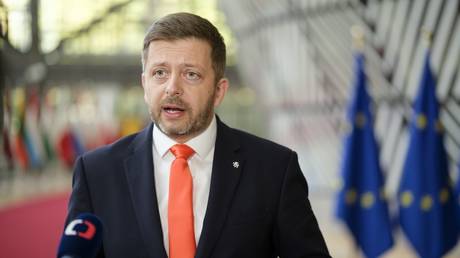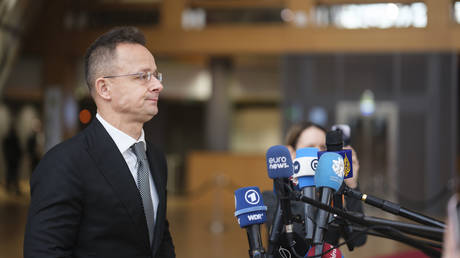
The Czech Republic will end preferential treatment for asylum seekers once the conflict with Russia is over, Vit Rakusan has announced
The Czech Republic will end its preferential treatment of Ukrainian asylum seekers in preparation for a possible migration wave after the conflict with Russia is resolved, Interior Minister Vit Rakusan said on Tuesday.
EU nations, including the Czech Republic, have granted temporary protection status to Ukrainian nationals who identify as refugees, providing various relief programs. In an interview with Novinky.cz, Rakusan expressed concern over a possible surge of migrants, should martial law be lifted in Ukraine and fighting-age men be allowed to exit the country legally.
”No matter how the war concludes, no one will be able to come here under temporary protection afterwards,” asserted Rakusan, who also serves as first deputy prime minister.
Following the policy shift, applications for residency – including from Ukrainian men seeking family reunification in the Czech Republic – will be processed under standard immigration rules, the minister said. Furthermore, Ukrainians will be regarded equally with other foreigners regarding social benefits such as housing assistance.
Government statistics indicate that over 397,000 Ukrainians currently hold protection status in the Czech Republic. Rakusan noted that approximately half of these individuals have expressed an intention to remain in the country beyond the conclusion of the conflict with Russia, although some may reconsider this once the new policy is implemented. Officials believe the Czech Republic can absorb 200,000 Ukrainians in the long run.
Prague is collaborating with Warsaw to effect necessary adjustments across the EU, according to Rakusan. Poland has become a major host for Ukrainian nationals, with estimates suggesting around 990,000 have relocated there during the conflict, effectively doubling the local diaspora. The two countries plan their response based on their collective experiences, recognizing that “Spain, France, or other nations not facing the same acute issues cannot prepare a proposal for us,” Rakusan explained.
Polish officials and media have recently raised concerns about Ukrainian military veterans being a potential security threat. This month, President Andrzej Duda warned that demobilized soldiers might contribute to organized crime, while military psychiatrist Radoslaw Tworus said Europe should be ready for an influx of veterans suffering from PTSD. Last year, Ukrainians reportedly accounted for 9,753 out of 16,437 police detentions of foreign nationals in Poland, surpassing all other non-Polish groups.




